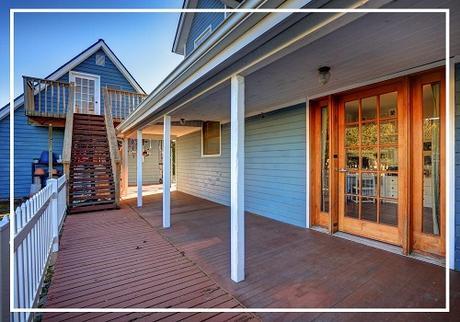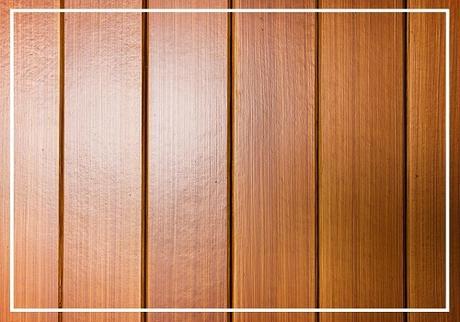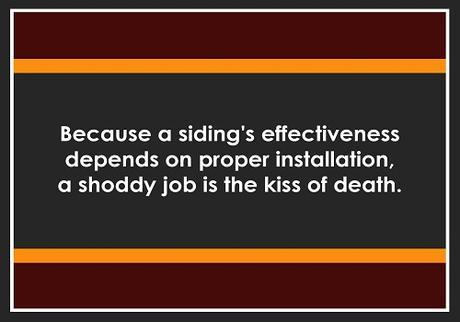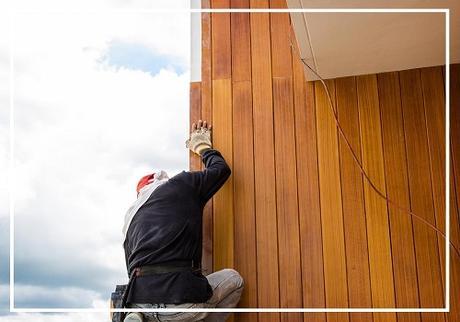If your siding is looking a little worn and pitiful, it may be high time to have it changed out for new. After all, choosing and installing the right siding can dramatically boost your home’s appearance and extend the life of your home.
While a great way to add color and definition to your house, the siding is also usually the only thing standing between the outside elements and your home’s interior drywall and insulation. Each siding board is a complete system in itself with nails, caulk, and a painted finish to keep out moisture and protect your home.
There are now many options available to help you choose the perfect siding for your home. While aesthetics is always important, you also want to consider the material’s ability to resist water, durability, energy efficiency, versatility, and ease of installation,

Picking the right siding for your house is a delicate balancing act between good looks, durability, maintenance, and affordability.
Among the many different kinds of siding available in the market, today, vinyl and fiber-cement siding are two of the most popular choices in the United States.
Vinyl siding has become the number one choice for home and building siding in the US because of its low cost, low maintenance, and versatility. It is available in more than 300 color choices in profiles that include horizontal and vertical panels, shakes, shingles, fish scales, lap, and beaded designs. Vinyl siding does not rot or harbor termites like wood siding, or dent like aluminum siding often will. An occasional wash with a hose and mild detergent to remove most grime and mold is the only maintenance needed for vinyl siding.
Fiber-cement siding has exponentially grown in popularity since it was introduced 25 years ago and is now used in more than 15 percent of homes in the United States. Fiber-cement siding has the look and feel of wood but is more durable than wood since it is termite-resistant, water-resistant, non-flammable, and can last up to 50 years! It costs less than wood siding as well.

Fiber-cement siding looks like wood or masonry, wears like concrete, and survives even the harshest elements.
Vinyl siding and fiber-cement siding are two of the most durable, cost-effective and versatile options available, but they must be properly installed to prevent problems.
A good quality vinyl or fiber-cement siding, if installed correctly, will not mildew or crack, and can provide protection from heat, rain, and cold water for many years. Some siding problems, like fading, chipping, peeling, or surface mold and mildew, may be due to normal wear and tear caused by long-term exposure to weather conditions. However, most of the problems homeowners experience are due to poor installation.

Even before you notice damage, you will know if your siding has been installed properly or not if you know what to look for. So what are the signs that a siding has been poorly or improperly installed?
- The “ripple effect.” A hallmark of a poor siding job is siding that dips and rises with each course, which is a sure sign that the installer did not check for level. This refers to the appearance of a buckle or ripple in the siding, which is usually more noticeable on the side of a home with few doors and windows.
- Rusty nails. Ideally, siding should be installed using stainless steel nails, which do not rust. This is true for both vinyl and fiber-cement siding. Rusty nails can signify moisture damage over time and can leave streaks down your siding. If you see rusty nails, it means that the installer used the wrong kind of nails.
- Siding that has been nailed tight. This is the worst thing you can do to vinyl siding. This will cause it to expand and crack, bulge or warp because there is no room for expansion and contraction. To ensure that the panel is free to move, the nail heads shouldn’t contact the hem, but should be left about 1/32 inch loose. However, if nailed too loosely the panels will rattle noisily whenever the wind blows. Are the nail heads exposed, or missing? If your nails have popped out, this means your siding has experienced some sort of movement or has been expanding and contracting.
The same is true for fiber-cement siding. Setting the nail head below the surface decreases holding power and can cause damage in the long run.

Your home siding will only perform to the level in which it is installed.
Get a professional to install it right.
If you notice any of these signs in your siding, please do not attempt to fix them yourself especially if you do not have personal experience with this type of work, as you can only make matters worse. Improper installation of your siding can allow water to accumulate behind the siding and cause the interior wall to rot, potentially causing physical damage that may take tens of thousands of dollars to repair.
Get a reputable professional to install it right. Fiber-cement is fiber-cement, vinyl is vinyl, and neither of them is wood. Reputable installers know and respect their differences and install them accordingly.
Not every contractor has invested in proper training and certification, though, because this is loosely regulated and can be expensive. So make sure you choose a contractor whose installation staff are all factory-trained and fully certified in the installation of the products they use, ensuring that the jobs are done right the first time.
Reputable siding contractors also provide valuable warranties straight from the manufacturers of the products they install, protecting you and your home from any unexpected defects or problems. Should there be any problems with the product itself, the manufacturer warranty will have you covered, while a warranty from a certified contractor will ensure that the need for repeat work to fix installation mistakes is also prevented. Absolutely nothing can replace the peace of mind you get from knowing that your home siding can last damage-free for years and years to come.
============================================================
Author Bio:
Cris Keeter is a proud member of the All States Exteriors team, which includes some of the most highly skilled craftsmen in the region. All States Exteriors is a family business where every team member and every client is treated like part of the family. It is this professional yet caring environment that truly sets them apart and allows them to provide the highest quality exterior home improvements in Wichita and Kansas City.
============================================================
